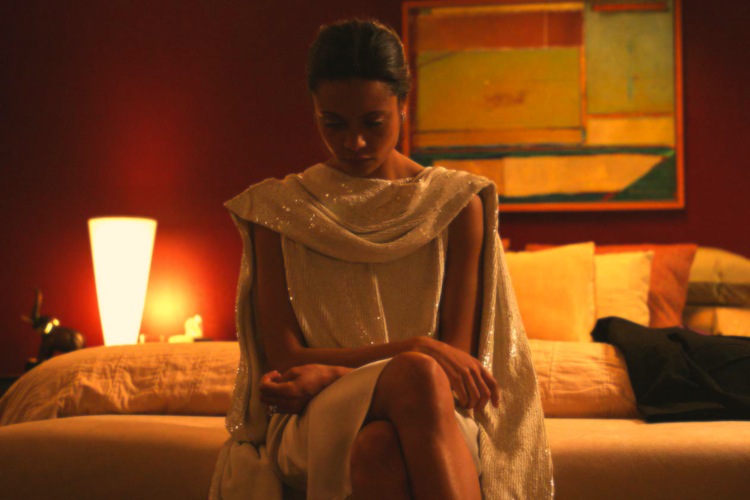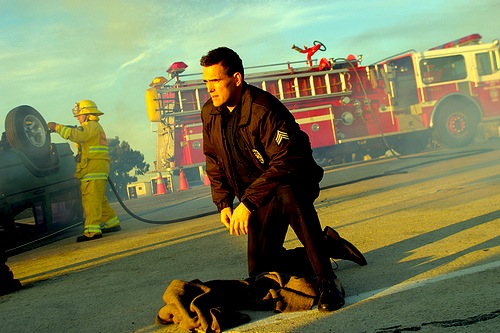
By David Ross. I finally saw Paul Haggis’ Crash. I laughed (at it), I cried (out in disgust!). Here is the liberal imagination crazed by its own clichés: a vision of American life in which each of us ceaselessly ricochets between mindless acts of racism and violence with barely enough time to catch our breaths and reload our guns. The question is whether the film is a searing expose (prostrate thyself, Oscar!) or a ludicrous caricature. I can comment only on my own experience. In forty years spent in five states, northern, southern, and mid-western, I have never heard a racist peep much less witnessed a racist tirade of the kind Matt Dillon’s character specializes in, and I have entirely evaded the kind of Wild West crossfire that Crash takes for the norm.
I have a dear lifelong friend who is black (raised on the campus of a small Bible college, now a hedge fund manager living in North Carolina). I once asked him whether he had ever encountered the racism that the media infallibly describes as omnipresent. He said, “Honestly, I haven’t.” “Nobody ever called you a nasty name or demeaned you in some way?” “Nope.” He then asked me whether I had ever encountered anti-Semitism. I said, “Honestly, I haven’t.” Later, in Europe, I did experience the electric shock of authentic Jew hatred, but to this day I have never suffered so much as an American raised eyebrow or skeptical sidelong glance. Americans, as far as I can tell, are the most Judeo-tolerant people in the history of the Western world. Racism and anti-Semitism undoubtedly exist, but they do not dominate every interaction and waking moment, and they are nothing like the essence of our daily or national experience. Crash wants us to see ourselves in its mirror, but I see nothing I recognize.

What I witness from my seat on the city bus is an astonishingly successful experiment in pluralism, in which people are consistently polite and deferential and not infrequently cross racial and religious lines to become friends and more than friends. I am a Jewish-American married to a Taiwanese. Our little girl is a red-headed Chinese-Jewish daughter of the South. Her best friend is half North Dakotan, half Indian. Dr. Apuzzo is an Italian-American married to an Indian-Canadian, our own glamorous Govindini Murty. They are residents of the very city that Crash demonizes as a strip-mall Yugoslavia simmering with civil war, and yet they seem hardly torn apart by its supposedly vicious cross-currents. Is Libertas or Crash the true American microcosm?
The antidote to Crash is The Wire: an urban vision no less dark, but infinitely subtler, truer, and smarter, and far less given to hysterical generalization. Crash is cheap farce camouflaged by a self-important grimace of hate. The Wire is tragedy of the old kind, in which social and economic forces function as ineluctably as the Greek fates.
The contemporary definition of ‘serious’ art: that which confirms and dignifies liberal cliché.
Posted on December 3rd, 2010 at 9:40am.
The biggest leftist in my circle of friends absolutely hated Crash. His exact words from an email he sent me at the time:
Horrible film. Everyone is a racist. That’s all it’s got to say.